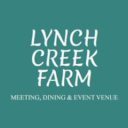2008-JUN > IT’S OFFICIAL: DEVONS ARE TASTY AND TENDER by Ridge Shinn
The data has arrived. Laboratory analysis has confirmed the reports from our customers and vendors: Rotokawa® Devon/Angus beef is consistently tender and tasty.
Hardwick Beef has received rave reviews about these cross-bred calves. (A national Whole Foods representative who sampled this meat
declared it the best beef he’d had in America). But we wanted scientific data based on a large, random sample of animals.
The health benefits of grass-fed beef for the consumer, the bovine, the farmer/rancher and the environment have been trumpeted in the press, and
“grass-fed beef” is one of four categories recognized by the main-line National Beef Cattleman’s Association. But we know that taste and tenderness
are essential for the consumer to fully embrace a 100% grass-fed and finished beef program. And consistancy is necessary for long-term market
success.
One reason for the variability of meat today is the adherence to cross-breeding programs by the industry-at-large. Some companies actually market “composite” bulls which are generally a three-way cross. The resulting variability is the enemy of consistent, quality meat. Numerous 100% grass-fed beef companies deal with variability by sorting cattle using an ultrasound machine. With this approach, live cattle are harvested only if they meet the quality standard set by the meat company. But how many producers will allow a meat company to “cherry pick” their good cattle every year?
The Bakewell Reproductive Center has discovered that using a condensed, high-quality bull helps create a consistent meat product. While it takes a long perspective, commitment, and patience to create a great 100% grass-fed bull, Artificial Insemination (AI) allows a producer to get a very consistent group of high quality calves rapidly, with the overwhelming majority fitting the profile of high-quality grass-fed beef. (www.bakewellrepro.com)
Bakewell has evaluated numerous breeds of cattle and subsets of these breeds from around the world to find bulls suitable for providing consistency.
The breed that excels is the Devon. (www.northamericandevon.com)
To test the hypothesis that the Rotokawa® Devon bulls stamp their progeny with the characteristics of high-quality meat, Bakewell and Hardwick Beef tested a random sample of ½ Rotokawa® Devon steers. These calves were from commercial Angus mother cows bred to the Rotokawa® Devon bulls by AI. They were born and raised in Montana, and were fed hay and alfalfa combined with a mineral supplement for their first winter. The calves were then grazed on ryegrass on irrigated land and were harvested weighing between 1100 and 1250 pounds at 15 to 17 months of age. They were killed in Montana and the primals were “wet-aged” for 14 days. We cut two, adjacent, 1 inch rib eye steaks from the 12th and 13th rib of 25 steers. Frozen samples were shipped to Susan Duckett, PhD, a nationally recognized expert on livestock nutrition and meat quality in the Department of Animal and Veterinary sciences at Clemson University. The steaks were evaluated for fatty-acid values as well as tenderness values as measured with the Warner-Bratzler shear force test.
Preliminary findings are very exciting. We have received results from the first eight samples and they show very consistent high quality. Total fat values were equivalent to USDA choice (87%); the Omega 6 Omega 3 ratio was a near perfect 1.26 to 1; and the Warner-Bratzler Shear values were even better than the level at which 98% of people feel the meat is quite tender and of restaurant quality.
In spite of all the press criticizing animal fats over the past decades, the consumer is beginning to understand that “good fats are good”; essential fatty acids are just that- essential for many aspects of health. Conjugated Linoleic Acids which are produced in the rumen of the bovine (one of the few places these are manufactured) have numerous health benefits, including creating lean muscle mass and stopping tumor growth in mammalian experiments. The correct ratio of omega 6 fatty acids to omega 3 fatty acids is critical to health, and Duckett says this ratio is like a fingerprint that verifies 100% grass-fed beef. To learn more about these fats and their importance to the human diet visit www.eatwild.com.
High levels of “good” fat and tenderness are essential for palatability of 100% grass-fed beef. The consumer’s acceptance and embrace of this product depends on experiencing quality consistently. The recent data from Duckett regarding the Angus bred with the Devon bulls is an excellent indication that the Devon cattle are the ultimate “grass’ cattle. They have always been an easy fleshing breed on grass, and were also known historically as the “butcher’s breed” for the quality and volume of meat. Bakewell believes that artificial insemination using proven Devon bulls is the fastest and best way to introduce consistent quality to your 100% grass-fed beef program.
Bakewell Reproductive Center
P.O. Box 441
Hardwick, MA 01037
E-mail: ridge@bakewellrepro.com
Phone: 413-477-6500
Fax: 413-477-0937

Leave a Reply